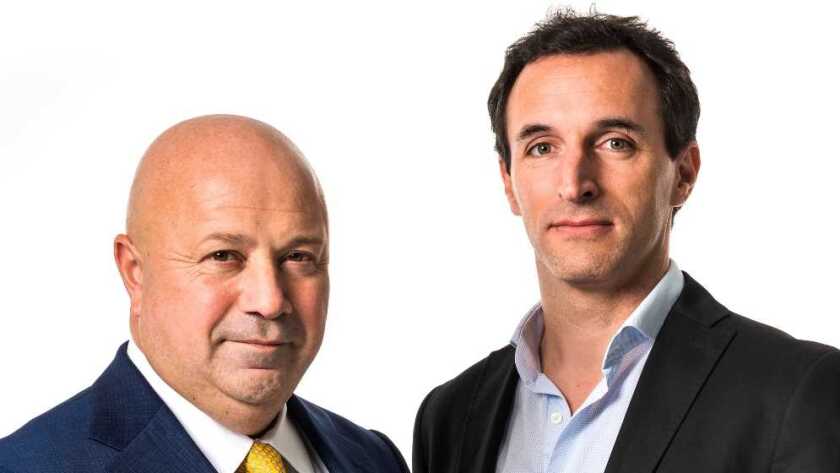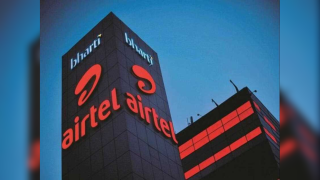When you look at a company’s executive team roll call, it’s usually a ‘simple’ list of executives: one CEO, one CFO, one CMO, one CISO, and so on depending on the size, scope and needs of the business.
But then you have those who opt to go the disruptive way and shake things ups a bit. That is when you come across a company with two CEOs. And in fact, you are most likely to have a device in your pocket or in the house from a company with three active CEOs. That is Samsung.
Back to the practice of having two co-CEOs, this is more common in Europe, especially in Germany. SAP, Daimler AG and Deutsche Bank are just three examples of German companies that had or have two CEOs driving the business strategy.
On the other side of the Atlantic, in Silicon Valley, cloud giant Oracle also used to be run by two CEOs, Safra Catz and the late Mark Hurd, between 2014 and 2016, when Cruz was named sole CEO.
In the telecoms space, a company that has opted for the co-CEOship model is Nasdaq and Euronext Amsterdam-listed global provider Veon, which in March appointed co-CEOs Sergi Herrero and Kaan Terzioğlu.
“Having two CEOs is perhaps a bit unorthodox,” says Herrero. “From the outside it may seem like Veon has gone through a lot of changes [with several executives’ roles changing in the last few months], but from the inside it was a thoughtful set of movements.
“Starting with the board, former chairman Ursula Burns has always been very clear that she wanted to join in helping this transition. The way that it was conducted and how Ursula and the board at that the time supported this transition was very good. The focus came to the management and at that time the management was not structured the right way to succeed moving forward.
“Ursula and the board were quite bold when she came to bring the talent that could continue to endure the necessities of the business. That is why we ended up having two co-CEOs.”
Herrero and Terzioğlu both agree they support each other when it comes to managing the business. Herrero, coming from Facebook and Square, is focusing on driving partnerships, digital and new ventures to completely fold adjacent businesses, but at the same time transform part of the core business to be adapted to the reality of the markets.
As for Terzioğlu, the former CEO of Turkcell brings with him a vast knowledge of the telecoms industry, so when it comes to deploying the right network and improving the efficiency, he’s the one taking to the driver’s seat.
“It is a fantastic complementary set of minds and experiences,” Terzioğlu says. “I am extremely excited about Veon and that was one of the reasons why I moved from Turkcell. I saw Veon as an almost untouched gem. If you look at the 10 markets we operate in, we are still at the beginnings of the growth including the potential of 4G as the platform, which can only be crowned by the right digital services and entry into user markets.
“We serve a population of almost 600 million people. Only 31% of our revenues come from data. Only one fourth of our subscribers are LTE. If we can execute our strategy with the complimentary experiences and divisions, we have Sergi, not only driving our basic business but also attacking the adjacent markets, especially on financial services.”
The financial services market is potentially one of the biggest opportunities for Veon, both co-CEOs agree. Out of 10 countries, six are some of the “most unbanked societies in the world”.
“These are exactly the next 10 years’ worth of stories to come,” Terzioğlu adds. “That is why we are very excited about the potential. We are working very effectively, hand in hand. Many things have changed since the start of our co-CEO appointments and lots more will come into place.”
Eagle Eye Focus
The natural question that comes to mind is what’s next for Veon as a business. The company is currently in discussions with Team LLC regarding a potential transaction in Armenia. However, Veon does point out that these discussions may or may not result in a transaction, and just as recently as May, the operator withdrew from discussions with UCom CJSC relating to another potential transaction involving its operating company also in Armenia, which was previously disclosed in January.
Acquisitions are an important part of a business’ growth strategy, so it comes as no surprise that Veon is constantly looking for a deal worth investing in. But there’s more to it.
“Focused and thoughtful investment. That is the name of the game for us,” says Herrero. “We don’t want to be one of those companies that starts spraying money or building tons of products. We have very clear streamlines when it comes to financial services, when it comes to content and when it comes to data and ethics. Those three pillars are definitely a priority for us.
“We’re going to be opportunistic. If we continue to execute and refine our approach in these areas, we’re going to be successful. If we can do diversion, and not pay attention, then it will be too complicated.”
A strategy that Veon has successfully deployed before is the acquisition of further asset shares across its existing portfolio. The most recent headline-grabbing transaction was last year’s $723 million investment – including a tax bill – on taking over 42.3% of Egypt’s Global Telecom Holdings (GTH), a business the Dutch giant had already acquired a large stake in for $6.6 billion a decade ago. GTH controls Djezzy in Algeria, Bangalink in Bangladesh and Jazz in Pakistan.
Asked if Veon could be looking to acquire a stake in businesses it already operates, Herrero makes it very clear: “It is something that we continue to take a look at and we will decide on an ongoing basis. That could definitely be a plan, no decision has been taken at this point.”
Co-CEO Terzioğlu continues by using GTH as an example. He says: “GTH is fully integrated because it was a holding company, holding our assets in Bangladesh, Pakistan, and Algeria. By doing that acquisition, we simplified our organisational upstreaming capabilities.
“From a future growth potential perspective, what we are seeing as the key to the business is not adding new geographies to our businesses, but adding new business adjacencies and digital services that will drive our growth.
From that perspective Sergi’s role will be critical because we have to really look into ways that we can create a more efficient return for our current customer base of 212 million people.”
Terzioğlu is quick to add that the potential in the current markets Veon operates in, is not only the 212 million it already has as clients, but the 650 million people that the company serves in the countries that it operates.
“That is our primary focus now,” he reiterates. “People should not be looking at us [and think we are] looking into new countries. On the contrary, expanding in the ones we already operate and expanding to the populations that we are not today reaching out in those [is our focus].”
Building the footprint in current geographies is a task that Herrero recognises will require a lot of groundwork to be done, but it is definitely not impossible, with the executive laying down two paths for progress.
He says: “There’s a lot of room to grow when it comes to 4G, but there is also a digital path which makes us able to provide these services, not only to our subscribers but to everybody that is living in the country. When we reach full potential in these geographies, then we definitely will think of adding new ones. But I think that it would be a bit foolish to think outside these 10 markets for the time being.”
When looking at the market in general today and taking into consideration the Covid-19 pandemic, Terzioğlu concludes that the trend that is unstoppable right now is the digitalisation of the customer experience.
“When it comes to customer registration, self-service and ability to provision online, this trend is going to be shaping a lot of things, including new cost structures for us, as well as new customer expectations as well,” he says.
“This is one area that I am strongly focusing on to make sure that we don’t miss the opportunity to leverage this crisis [that is the virus]. This crisis cannot be wasted, basically.”





